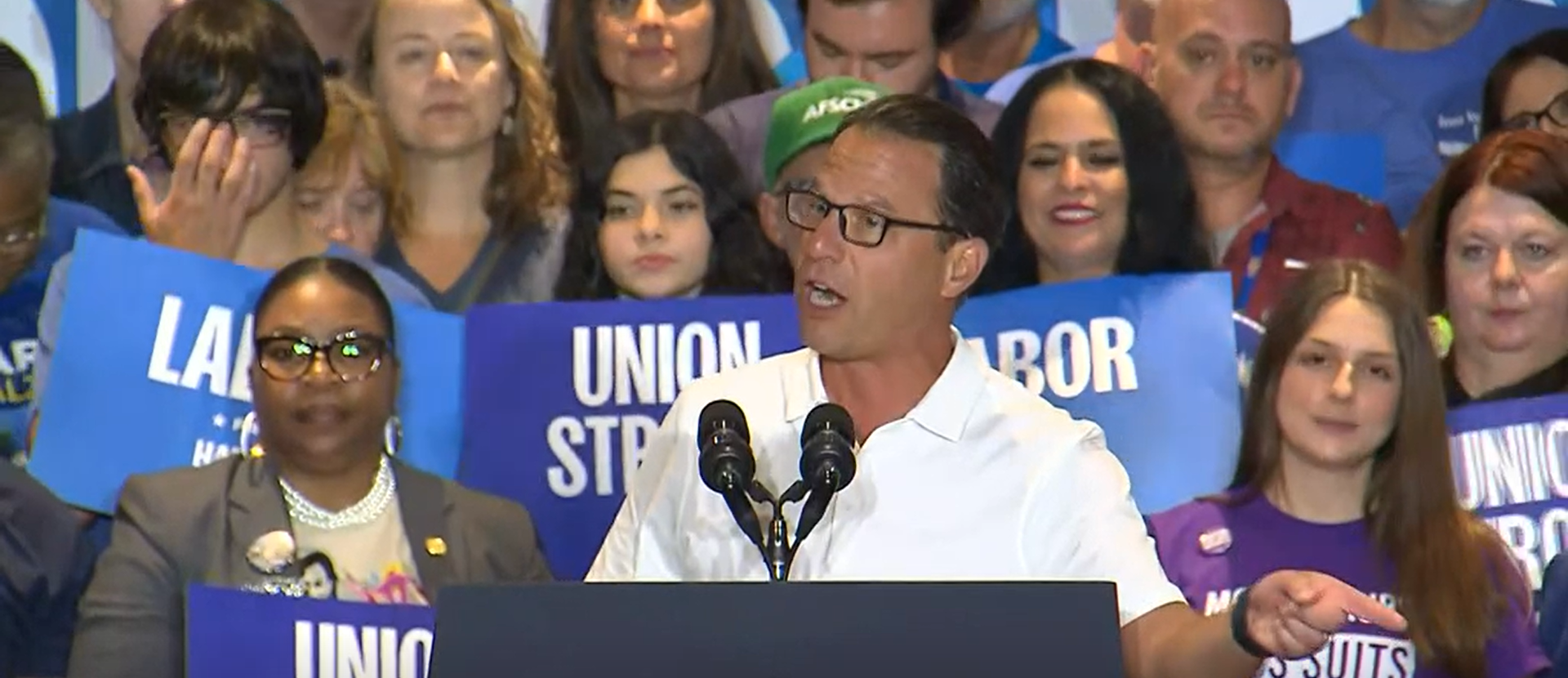Commentary: Big Tent Ideas
ELIZABETH STELLE: It’s Time To Fix Pennsylvania’s Bad Election Laws

Screen Capture/CSPAN
The 2024 election is finally over. On December 4th, the Pennsylvania Department of State certified the results — almost one month after Election Day. And though this election was relatively uneventful (especially by 2020 standards), the lawfare over Pennsylvania’s vague election laws continues to rage.
Several groups, such as the ACLU and the Pennsylvania Republican Party, have filed countless lawsuits since the 2020 election for different reasons. Some want to clarify election law, while others outright reject procedures to protect mail-in voting from fraud.
This lack of legal clarity resurfaced in the 2024 election. The law’s omissions drove the recent controversy over misdated ballots in the contentious U.S. Senate race between the incumbent, Sen. Bob Casey, and David McCormick. This dispute inspired the now-infamous declaration by Bucks County Commissioner Diane Ellis-Marseglia: “[P]recedent by a court doesn’t matter anymore in this country, and people violate laws anytime they want.”
Responding to this controversy, Gov. Josh Shapiro asked for legislation to clarify mail-in ballot requirements. “Both my predecessor and I have repeatedly called on lawmakers to deliver greater clarity on mail-in voting – and due to certain legislative actors refusing to act on critical election reforms, this issue had been left to the courts,” said Shapiro.
However, there’s one problem with the governor’s statement: Lawmakers crafted such reforms, but Shapiro’s predecessor, former Gov. Tom Wolf, killed the legislation. In 2021, Wolf vetoed comprehensive election reform legislation designed to clarify the 2019 mail-in voting law, enact voter identification, and help county officials promptly conduct consistent and transparent elections. Wolf had the opportunity to address this issue and refused.
But it’s not too late. In fact, the best time to change election law is right after an election.
The new legislature should take Shapiro up on his offer. Lawmakers should deliver an election reform bill that builds on the incremental improvements made in 2022. Most importantly, they must, once and for all, put to rest the confusion surrounding mail-in voting.
This statewide ambiguity has produced a piecemeal system that varies by county. Currently, 38 Pennsylvania counties practice “notify and cure,” allowing voters to correct mistakes on their ballots before the county officially rejects them. Meanwhile, 26 counties don’t offer similar notify-and-cure provisions.
Murky laws aren’t just an efficiency problem; they’re also expensive. The U.S. Senate recount, arguably triggered by inconsistent counting of misdated mail-in ballots, would have cost taxpayers about $1 million if Casey had not conceded.
Last fiscal year, Pennsylvania’s Department of State spent almost $600,000 on outside counsel to handle election-related litigation, according to Robert Beecher, the agency’s deputy policy director. Since the 2020 election, the department spent more than $5 million on third-party legal representation to address election-related litigation. This amount doesn’t count the department’s full-time counsel and other department employees.
County costs are mounting, too. Since 2020, Centre County has been party to 17 lawsuits, which took three years to settle. Bucks, Chester, and Delaware counties have spent more than $2.6 million on outside attorneys to deal with election-related litigation since the 2020 election.
Under this status quo, election lawyers win, and taxpayers lose.
To fix this, new legislation should follow a simple principle: Voting should be easy, and cheating should be hard. Policies can include requiring voter identification, establishing earlier mail-in ballot deadlines, allowing earlier pre-canvassing, requiring supervised ballot return locations, restricting foreign donations, and setting clear rules for curing faulty mail-in ballots.
Polling suggests people would support such legislation. An overwhelming 70% of voters support voter identification requirements.
Secure and accessible elections are too important for Shapiro to kick the can to the legislature. Rather than his traditional “I’ll sign it if you get it to my desk” posture, he should proactively work with lawmakers on a package of reforms that finally remove the guesswork from election administration.
The 2024 presidential race didn’t come down to Pennsylvania alone. However, there’s no question the nation’s largest swing state could once again become the deciding factor in future national elections. That’s even more reason for Shapiro to follow up his rhetoric and work with lawmakers to protect Pennsylvania from another election cycle of expensive inconsistencies and doubt-seeding confusion.
This article was originally published by RealClearPennsylvania and made available via RealClearWire.
Elizabeth Stelle is Director of Policy Analysis of the Commonwealth Foundation, Pennsylvania’s free-market think tank. X: @ElizabethBryan
The views and opinions expressed in this commentary are those of the author and do not reflect the official position of the Daily Caller News Foundation.
All content created by the Daily Caller News Foundation, an independent and nonpartisan newswire service, is available without charge to any legitimate news publisher that can provide a large audience. All republished articles must include our logo, our reporter’s byline and their DCNF affiliation. For any questions about our guidelines or partnering with us, please contact [email protected].

